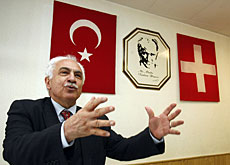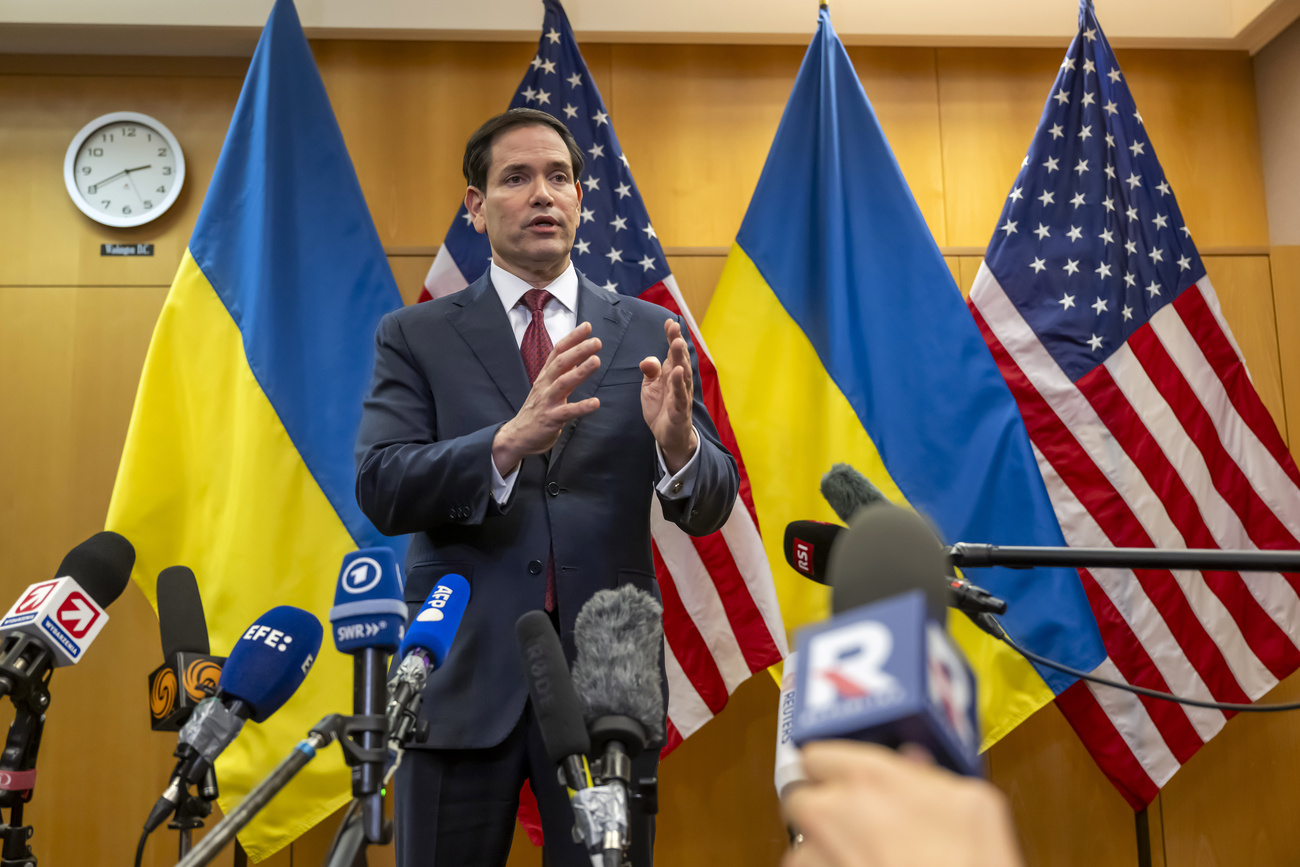
Genocide denial trial raises many questions

The trial has opened in Lausanne of Turkish politician Doğu Perinçek, who made comments in Switzerland denying the 1915 Armenian massacre was genocide.
The court case, which is centred on Swiss anti-racism legislation, is set to test the already shaky relations between Bern and Ankara.
A meeting between Swiss Justice Minister Christoph Blocher – an opponent of the law – and his Turkish counterpart Cemil Cicek in Bern at the weekend raised eyebrows.
Perinçek, the head of the left-wing Turkish Workers’ Party, stands accused of racial discrimination after he called the genocide “an international lie” during a public speech in the city of Lausanne in July 2005.
Lausanne is the main city of canton Vaud, where the parliament in 2003 voted to recognise the killings as genocide.
An estimated 150 supporters of Perincek held a silent protest in the city on Tuesday to coincide with the start of the trial.
In court, Perinçek admitted there had been massacres but said there could be no talk of genocide.
“I have not denied genocide because there was no genocide,” he argued.
Under the Swiss penal code any act of denying, belittling or justifying genocide is a violation of the country’s anti-racism legislation.
Armenians maintain the mass killings in 1915 were genocide, a charge Turkey disputes.
Experts say the presiding judge at the district court in Lausanne will have to negotiate some tricky waters concerning both the law and Swiss-Turkish relations.
Tensions between Bern and Ankara were high in 2005 after Turkey criticised the Swiss authorities’ decision to investigate Perinçek. It also later cancelled an official trip to Turkey by the then economics minister, Joseph Deiss.
Law debate
The law itself has been the subject of debate since Blocher announced during a visit to Turkey last October that the legislation was incompatible with freedom of expression.
The comments were welcomed by Ankara but caused a storm of protest in Switzerland.
Blocher has again come in for criticism by the media and some politicians over the timing of the meeting with his Turkish counterpart at the weekend. According to the justice ministry bilateral issues – and not the trial – were discussed.
Legal experts have also raised questions about the law – albeit in a different context.
“The lawmakers wanted to assimilate the negation of a historical reality to a racist proclamation. This is controversial, because it is about two different things,” said Robert Roth, dean of the faculty of law at Geneva University.
But Roth believes the central question of the trial will be something else – who should make a judgement on historical events?
Genocide or massacre?
The Armenians say Ottoman Turks slaughtered up to 1.8 million Armenians in a planned genocide between 1915 and 1918. Turkey denies the mass killings were genocide, saying the death toll is inflated.
So far most historians, the Council of Europe, the French parliament and the Swiss House of Representatives – plus two cantonal parliaments in Switzerland – have all recognised the events as genocide. The Swiss government does not officially speak of genocide.
Francesco Bertossa, who was part of the defence team in another Turkish genocide denial trial in 2001 in Bern, believes the definition question should not influence the verdict.
“The anti-racism law does not only punish genocide denial but also any crime against humanity,” he said.
Swiss-Armenians
For its part, the Swiss-Armenian Association, the private party associated with the public prosecutor in the trial, welcomes the case.
“We will finally know if denigrating our people and tarnishing our memory is a crime in Switzerland,” said co-president Sarkis Shahinian.
Prosecutor-general Eric Cottier has been quoted as saying that unless shown to be otherwise, the Armenian genocide was “sufficiently recognised to be defined as such”.
But Perinçek remains defiant. Arriving in Switzerland at the weekend he reiterated his call for the law to be abolished and said he could prove that genocide did not take place.
A verdict in the trial is expected on Friday.
swissinfo, based on an article in Italian by Luigi Jorio
In 2001 a court in canton Bern acquitted several Turks accused of denying the Armenian genocide.
Its reasons were the lack of an official recognition of the genocide as such in Switzerland and the “obtuse nationalism” of the accused. The federal court, Switzerland’s highest legal authority, confirmed the acquittal in 2002.
In 2005, Swiss authorities also launched criminal investigations against the historian Yusuf Halacoglu, the president of the Turkish History Organisation, for allegedly denying the 1915 Armenian massacre while in Switzerland.
The Armenian question has long affected relations between Switzerland and Turkey, including the postponing of official visits.
The House of Representatives recognised the Armenian massacre as genocide in 2003, but neither the Senate nor the cabinet has officially done so.
Two cantonal parliaments have recognised the killings as genocide – French-speaking Geneva (2001) and Vaud (2003).

In compliance with the JTI standards
More: SWI swissinfo.ch certified by the Journalism Trust Initiative





























You can find an overview of ongoing debates with our journalists here . Please join us!
If you want to start a conversation about a topic raised in this article or want to report factual errors, email us at english@swissinfo.ch.